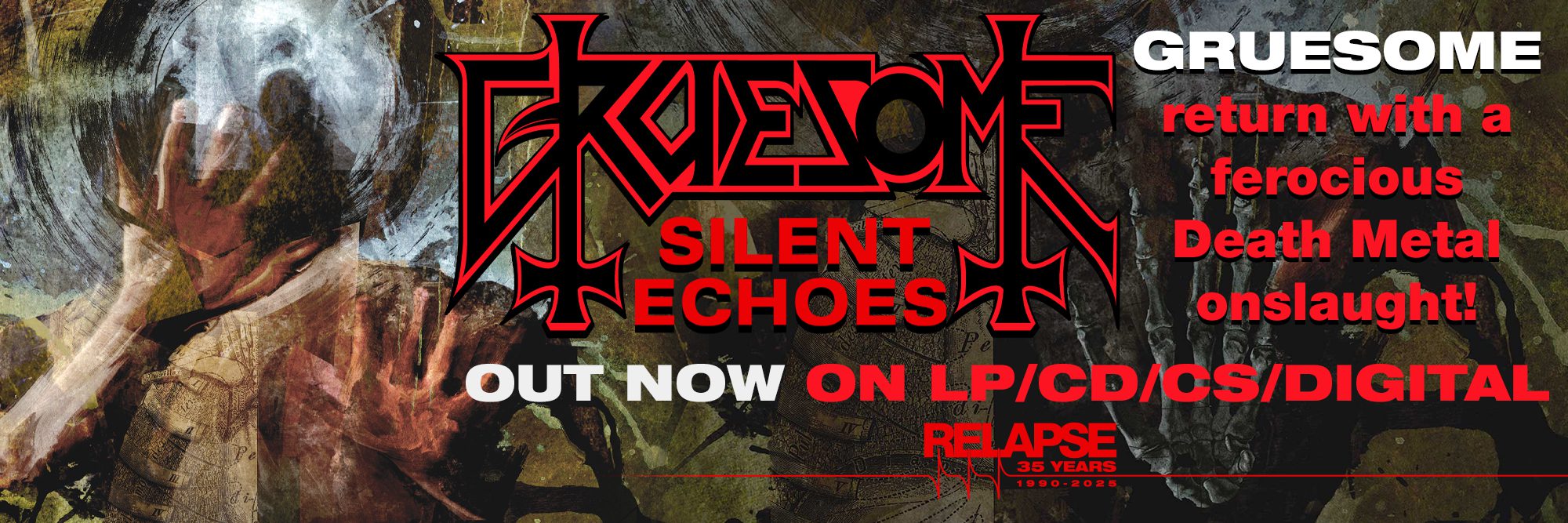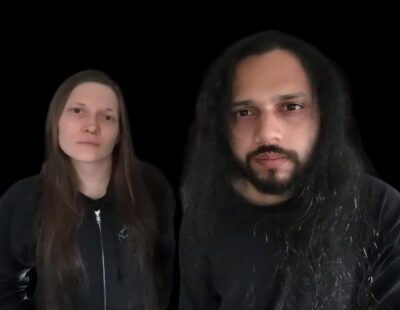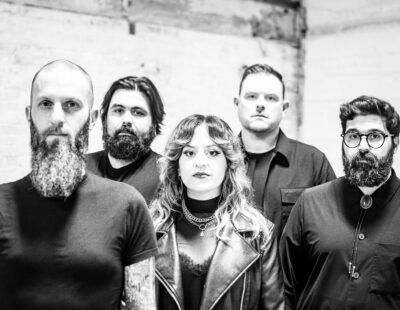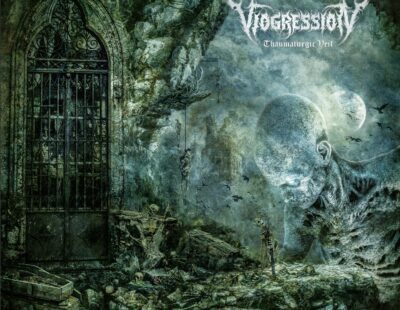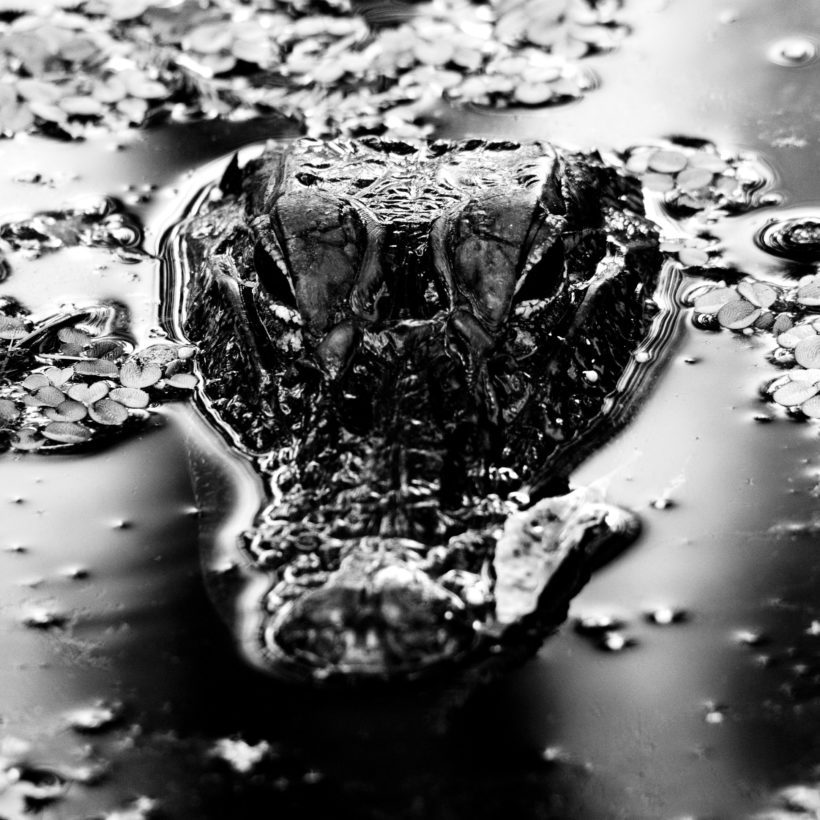
If noise is extreme music’s final frontier, Ethan McCarthy is one of the genre’s most-persistent explorers. Known best for his work with nihilistic doom mainstay Primitive Man and deathgrind trio Vermin Womb, McCarthy has spent the last fifteen years injecting noise into his bands and his solo effort, Many Blessings. If there’s been one consistent throughout those years, it is the unrelenting harshness that plagues his music—something that McCarthy steps away from on Emanation Body, his second full-length record as Many Blessings.
Emanation Body is, first and foremost, a slow-burning record. There are no blast beats and guitars crashing into mosh parts or D-beats to push walls of feedback forward. Here, soundscapes play out over the course of nearly 45 minutes, guiding the listener through emotional highs and lows that range from subtle (“Immersion”) to heavy-handed (“Ruina”).
Each song on Emanation Body—which you can stream in full below in advance of its May 29 release on Translation Loss—has a unique and recognizable sound. Decibel spoke with McCarthy about recording noise in a studio, the “rules” of extreme music and what the genre’s final form might sound like.
You have this new album coming out. What’s the writing process for an album like this look like? Does it look similar to a full band or do you approach it differently?
Some of the tracks are done in one take with just me running all my stuff at once and coordinating that idea, and then other songs were made with several tracks. It just kind of depends. Because I was trying to do something different with this one, I was in a nice studio [Dave Otero’s Flatline Audio] and I did a lot of the songs with several different instruments or whatever instead of just running it at once. There were a couple things where I just didn’t know how to do it unless I ran all of it at once.
When you conceive these songs, especially when you go in to do it in one take, do you go in with a preconceived idea of how you want it to sound or do you go in there and feel it out?
I know what I want it to sound like. I play shows and practice a lot with this stuff so I usually have an idea of what I’m going to do.
So it’s not improvisational.
No, not really. For live shows I’ll do improv stuff, but for recording I like to have a rough idea if I’m spending money, so I have to have an idea what the fuck is going on. I don’t want to put out, like, crappy improv.
When you’re trying to communicate palpable [emotions], how do you go about that?
I’ll be thinking of a topic and I’ll really try to think about what that entire process is like. With metal songs, I’m taking the peak anger or the peak depression or the peak insanity and I’m writing that down, communicating that. With this, it’s a slow burn, like a long process, so I’m trying to show the audience the long build of tension and the long, indifferent ways that you might feel going through a situation.
It’s more of a slow burn thing and there’s moments you can get really mad and sad in the same fucking two minutes, so I will try to do stuff where there’s a harsh movement in there and then it will subside into something else. Really just trying to go with that, the complete human experience surrounding anything you might be dealing with.
It seems that you’re moving toward a more cinematic, less completely harsh noise sound. What caused you to want to step away from doing harsh noise as your main thing?
Just trying to add some variety for myself. Spice of life. I still love harsh noise. I listen to the shit out of it, I still play it live, I still do harsh sets. I’ve recorded a couple of splits with harsh noise artists where it’s all harsh. I’m not walking away from it completely, but I just want to express myself differently for this one and I’ve done some other stuff that’s more in this direction as well.
I just wanted to have more of a spectrum of options with this project than just being limited to just being harsh only, which I know makes me kind of a noise poser. I don’t care. [laughs] That’s what it is.
A lot of the time, noise artists and noise projects are seen as a side thing or not as serious as a full metal band, especially when an artist has a full band or multiple full bands. Do you find that you encounter that a lot or that people think this is less serious?
It depends. I try not to play in any environments where I feel like people aren’t gonna appreciate it, but I’ve definitely been put in environments when people don’t appreciate and I’ve compensated by going straight to loud and aggressive and abrasive and fucking their night up.
It’s like “You can not take this seriously and drink your beer, but it’s going to suck for you,” you know? I try to stay out of that shit because it feels bad for everybody.
I don’t expect everyone to like it; I know what it is. I think the genre has a long way to go in terms of it being taken more seriously, so people gotta put in the work to make it more well known. I think over time it’ll be easier for noise artists to play different types of shows. For now, I really do try to be selective with the kind of stuff I do and I think everyone should be. It’s self-defeating to go out there and be treated poorly.
Live music is on hold right now. Has it affected how you promote this record, how you’re talking about it or sharing it with people? Or are you plugging full speed ahead?
That’s how I’m approaching it, just doing the best that I can in the situation I’m in. I was supposed to play a bunch of festivals and do some touring and that’s not happening so all I can hope that people who are stuck at home have the time and availability to listen to it and check it out.
Will you go back into writing mode once this album is out or are you the kind of person who needs to take a step back for a while when it comes out?
I’ve already got the demos for another record done because this album is pretty old to me. It’s over 18 months of being finished. It took some time to find a label and get it out there, so I’ve been doing splits and all sorts of shit in the meantime. Because of that, I’m ready to go with something else.
It’s a good way to always keep your name in people’s minds, right?
I like to create. That’s like the only thing I like to do, besides see my friends and smoke weed, so just always trying to do something.
You can’t really see your friends, so this is a good project.
I can do it by myself here. I haven’t been able to get together with my bandmates obviously so I’m thankful I have something I can put some energy into.
Can you explain what the album title means? Emanation Body?
It explains the vibe a little bit. It’s just a celestial body. It’s supposed to be an examination of everything, you know? I feel like a celestial body was a good way to sum that up, and it’s a liberation too. There’s a lot of reasons there.
How did you find yourself in noise and as a musician who spends so much of their sound playing with elements of that?
It started out with me doing it in my bedroom for fun, then it turned into me learning that other people do this for fun, then it turned into me learning that people record this and do it for fun and do it with other people. And then I started just learning about the folks that do it, just kind of stumbled into it on accident from DIY shows.
So were you already playing in bands by this point?
Yeah, I’ve been playing in bands since I was a kid. I got a little bit older—I’d say I was probably 19 or 20—and I was already playing in metal bands.
You were already very into extreme music by the time you were getting involved in [noise].
Absolutely, and I just started to feel like noise is the final step towards unlistenable, harsh vibes and that’s why it appealed to me because it just strips down all the rules that a standard rock format has and just throws it in the trash. That’s why I started to like it.
Even when it’s following “rules,” there are fewer rules than I think people generally observe in death metal or sludge or doom.
It has its own set of rules because shitheads will ruin anything, but the thing of it is that it has less of them, a more free zone to create in, in my opinion.


